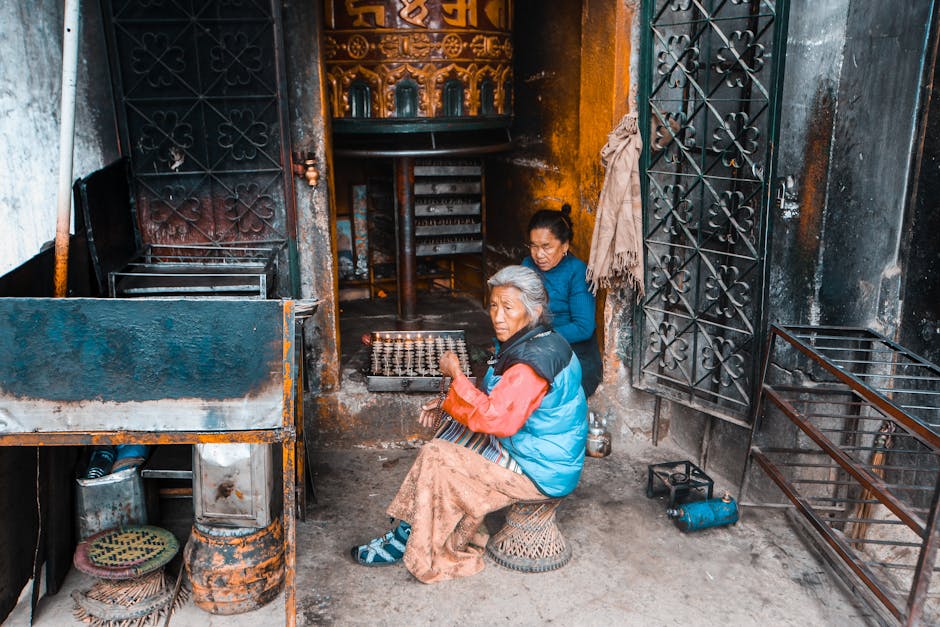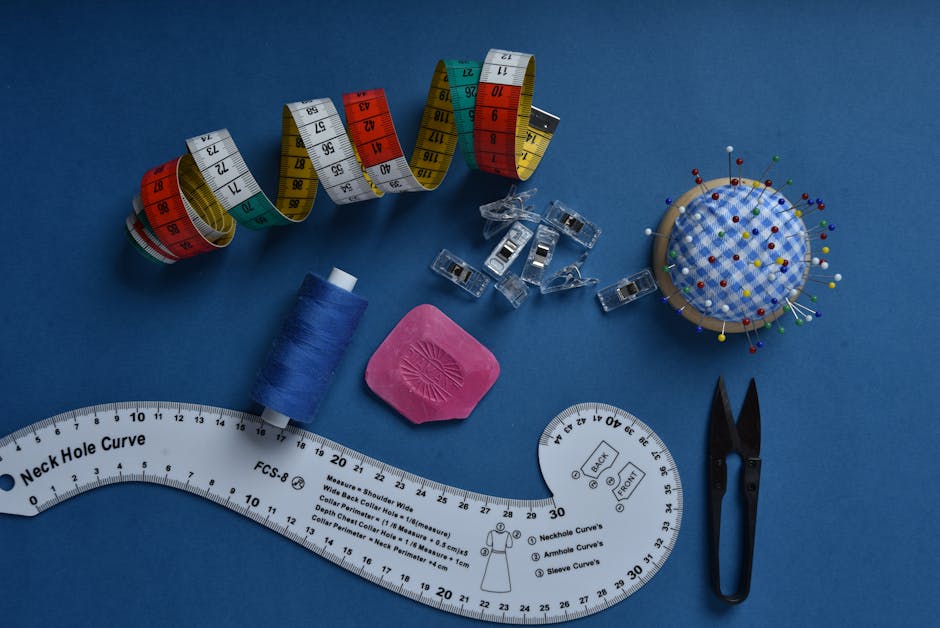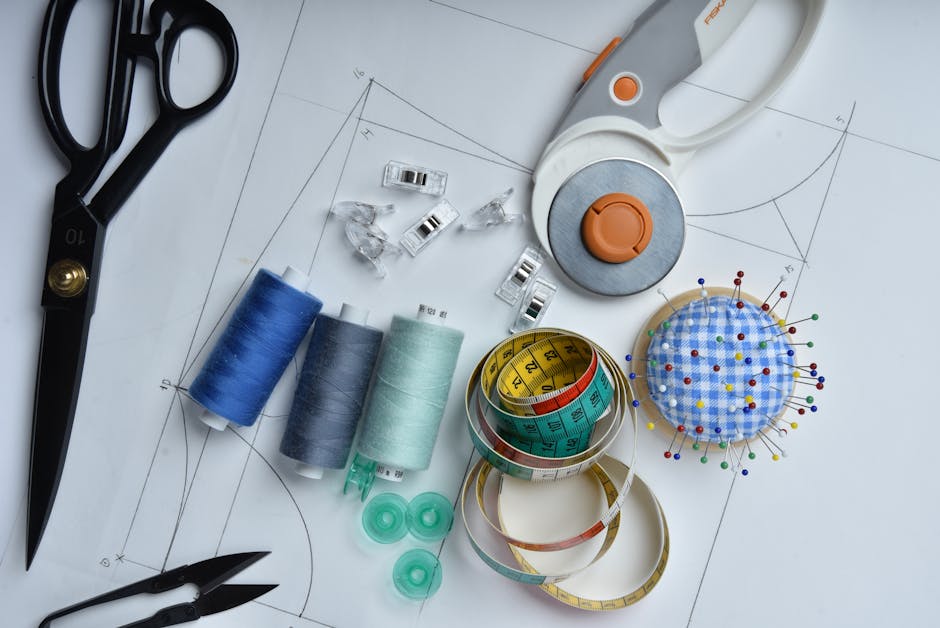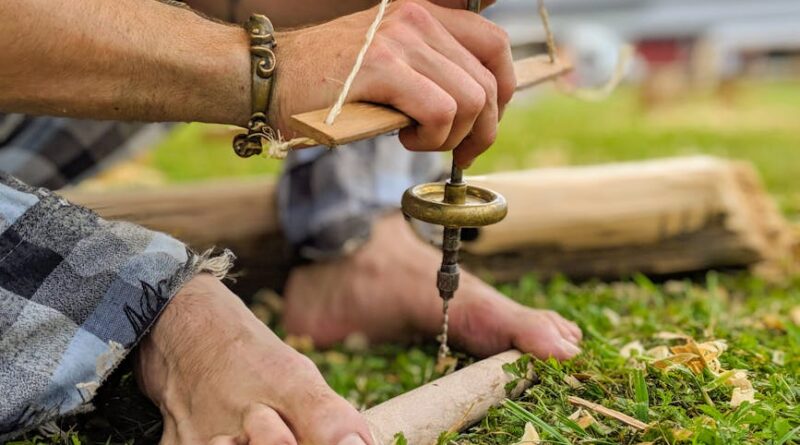Discovering the World of Crafting Workshops: A Comprehensive Guide
Are you someone who enjoys getting hands-on with creative projects? Do you find joy in crafting, creating beautiful pieces with your own two hands? If so, you might be interested in exploring the world of crafting workshops. These workshops offer a unique opportunity to learn new skills, connect with like-minded individuals, and unleash your creativity in a supportive environment. But how do you find these workshops, and what should you consider before signing up for one? In this guide, we will delve into the fascinating world of crafting workshops, exploring how to discover these creative spaces and make the most of your experience.
The Rise of Crafting Workshops

Crafting workshops have experienced a surge in popularity in recent years, thanks to the growing interest in DIY projects and handmade goods. Whether you’re interested in sewing, knitting, pottery, painting, or any other craft, there’s likely a workshop out there that caters to your interests. These workshops provide a hands-on learning experience, allowing participants to gain new skills, express their creativity, and create unique, personalized pieces.
One of the key appeals of crafting workshops is the sense of community they foster. Participants come together to learn, share ideas, and collaborate on projects, creating a supportive and inspiring atmosphere. Whether you’re a beginner looking to explore a new hobby or an experienced crafter seeking to refine your skills, there’s always something to learn and gain from these workshops.
Types of Crafting Workshops

There is a wide range of crafting workshops available, catering to various interests, skill levels, and preferences. Some popular types of crafting workshops include:
1. Sewing and Textile Workshops
These workshops focus on sewing techniques, fabric manipulation, garment construction, and other textile-related skills. Participants can learn how to create clothing, accessories, home decor items, and more using a sewing machine or hand-sewing techniques. Sewing workshops often cater to both beginners and advanced sewists, offering a range of projects to choose from.
2. Pottery and Ceramics Workshops
For those interested in working with clay and ceramics, pottery workshops provide an opportunity to learn wheel-throwing, hand-building, glazing, and firing techniques. Participants can create functional or decorative pottery pieces, such as bowls, vases, mugs, and sculptures. Pottery workshops often emphasize creativity, experimentation, and craftsmanship.
3. Painting and Drawing Workshops
Painting and drawing workshops allow participants to explore different mediums, styles, and techniques in visual art. Whether you’re interested in watercolors, acrylics, oils, pastels, charcoal, or pencil drawing, there’s a workshop that suits your preferences. These workshops provide a space for artists of all levels to express themselves creatively and develop their skills.
How to Find Crafting Workshops

Now that you have a better understanding of the types of crafting workshops available, the next step is to find workshops that align with your interests and preferences. Here are some tips on how to discover crafting workshops in your area:
1. Local Community Centers and Arts Organizations
One of the best ways to find crafting workshops is to check with your local community centers, arts organizations, and cultural institutions. These organizations often host a variety of workshops, classes, and events for the public. Look for community centers, art galleries, museums, and craft stores in your area that offer crafting workshops.
2. Online Platforms and Event Listings
Another convenient way to find crafting workshops is to search online platforms and event listings. Websites like Meetup, Eventbrite, and Facebook Events often feature a wide range of crafting workshops and creative classes in your area. You can filter the search results based on your interests, location, and availability to find workshops that suit your schedule.
3. Craft Stores and Studios
Craft stores and studios are excellent resources for finding crafting workshops and classes. Many craft stores offer workshops on a regular basis, covering various crafts like knitting, scrapbooking, jewelry making, and more. Additionally, art studios and maker spaces may host specialized workshops on specific techniques or mediums.
4. Social Media and Online Communities
Don’t underestimate the power of social media and online communities when it comes to finding crafting workshops. Joining crafting groups on platforms like Facebook, Instagram, Pinterest, and Reddit can connect you with other craft enthusiasts and workshop organizers. Keep an eye out for announcements, recommendations, and event invitations shared within these communities.
5. Word of Mouth and Networking
Lastly, word of mouth and networking can be valuable tools for discovering crafting workshops. Talk to friends, family members, colleagues, and acquaintances who share your interest in crafting. They may have attended workshops in the past or know of upcoming events that could be of interest to you. Networking within the crafting community can open doors to new workshop opportunities.
Considerations Before Choosing a Crafting Workshop

As you explore different crafting workshops and consider which ones to attend, it’s essential to keep a few key considerations in mind:
1. Skill Level and Experience
Make sure to choose a workshop that aligns with your skill level and experience. Some workshops may be geared towards beginners, while others may cater to advanced crafters. Be honest with yourself about your abilities and choose a workshop that challenges you without overwhelming you.
2. Workshop Format and Duration
Consider the format and duration of the workshop before signing up. Some workshops may be one-time events, while others may span several sessions or weeks. Decide whether you prefer a short, intensive workshop or a longer, more in-depth course based on your schedule and learning style.
3. Cost and Materials
Understand the cost of the workshop and what materials are included or required. Some workshops may provide all the necessary materials as part of the registration fee, while others may require participants to bring their own supplies. Factor in the overall cost of the workshop, including any additional materials you may need to purchase.
4. Instructor and Teaching Style
Research the instructor’s background, credentials, and teaching style before enrolling in a workshop. Look for instructors who have expertise in the craft you’re interested in and who are known for their supportive and engaging teaching methods. A good instructor can make a significant difference in your workshop experience.
5. Location and Accessibility
Consider the location and accessibility of the workshop venue. Choose a workshop that is convenient for you to attend, whether it’s near your home, workplace, or public transportation. Factor in travel time, parking options, and any other logistics that may impact your ability to participate fully in the workshop.
Common Misconceptions About Crafting Workshops
Despite the many benefits of crafting workshops, there are some common misconceptions that may deter people from participating. Let’s address a few of these misconceptions:
1. Crafting Workshops Are Only for Experienced Crafters
One of the most significant misconceptions about crafting workshops is that they are only suitable for experienced crafters. In reality, workshops cater to crafters of all levels, from beginners to advanced practitioners. Many workshops offer introductory classes for those new to a craft, providing a supportive environment for learning and experimentation.
2. Crafting Workshops Are Expensive
While some crafting workshops may come with a price tag, there are plenty of affordable options available as well. Community centers, libraries, and non-profit organizations often offer low-cost or free workshops to make crafting accessible to everyone. Additionally, DIY and upcycling projects can be a cost-effective way to engage in creative activities without breaking the bank.
3. Crafting Workshops Are Time-Consuming
Another misconception is that crafting workshops require a significant time commitment. While some workshops may span multiple sessions or weeks, there are also one-time workshops and drop-in classes that accommodate busy schedules. Many workshops offer flexible scheduling options to make it easier for participants to fit creative activities into their lives.
Conclusion: Embracing Creativity Through Crafting Workshops
As you embark on your journey to find crafting workshops and explore the world of creative expression, remember that these workshops offer more than just a chance to learn new skills. They provide a space for self-discovery, collaboration, and personal growth, allowing you to unleash your creativity and connect with others who share your passion for crafting. Whether you’re interested in sewing, pottery, painting, or any other craft, there’s a workshop out there waiting for you to dive in and get hands-on.
To wrap things up, take the time to research and explore different workshop options, considering your interests, skill level, and preferences. Attend workshops with an open mind, ready to learn, experiment, and create. Embrace the joy of making something with your own hands and connecting with a community of fellow crafters. Who knows what creative adventures lie ahead as you delve into the world of crafting workshops?




